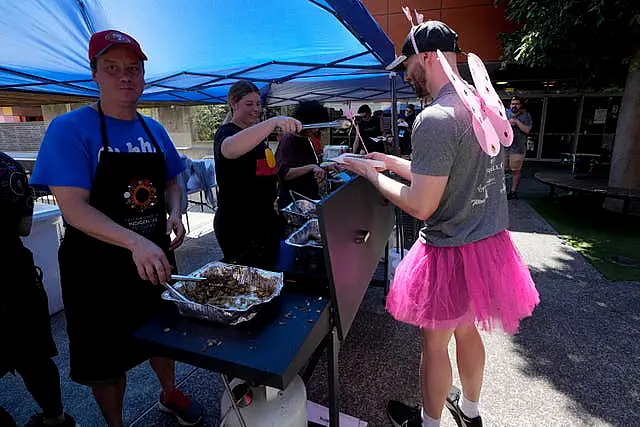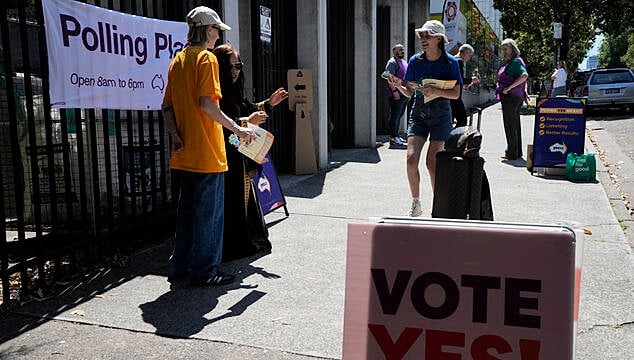Australians cast their votes on Saturday in the country’s first referendum in a generation as they decided whether to enshrine an Indigenous advocacy committee in the constitution.
The Voice would be a committee comprised of and chosen by Indigenous Australians that would advise the Parliament and government on issues that affect the nation’s most disadvantaged ethnic minority.
Opinion polls in recent months have indicated a strong majority of Australians opposing the proposal. Earlier in the year, a majority supported the Voice before the “no’ campaign gathered intensity.
Prime Minister Anthony Albanese, who visited every Australian state and mainland territory in the past week, has hit back at critics who said his proposal had created division in the Australian community.

“The No campaign has spoken about division while stoking it,” said Mr Albanese, saying the real division is the difference in living standards between Indigenous people and the wider community.
Opposition leader Peter Dutton described the Voice as “another layer of democracy” that would not provide practical outcomes.
The proposal for an Indigenous Voice to Parliament has bitterly divided Australia’s Indigenous minority, as well as the wider community.
Indigenous activist Susanne Levy said the Voice would be a setback for Indigenous rights imposed by non-Indigenous Australians.
“We’ve always had a voice. You’re just not listening,” she said as she spent polling day at the Aboriginal Tent Embassy, an Indigenous land rights protest in the heart of Australia’s capital, Canberra, since 1972.

The collection of ramshackle shelters and tents in a park is across a street from the former Australian Parliament building which was used Saturday as a voting station.
Yes campaigner Arnagretta Hunter was promoting the cause outside Old Parliament House just a stone’s throw from the Aboriginal Tent Embassy where signs advocating a No vote were on display.
Ms Hunter said she had some sympathy for the Voice’s opponents because some of their questions had not been satisfactorily answered, but described as a significant step forward for the nation.
She said: “We can’t listen where there’s no voice. And to legislate that and enshrine that in the constitution is key.”
If the proposal passes, it will be the first successful constitutional amendment since 1977 and be the first to pass without bipartisan support of the major political parties.







